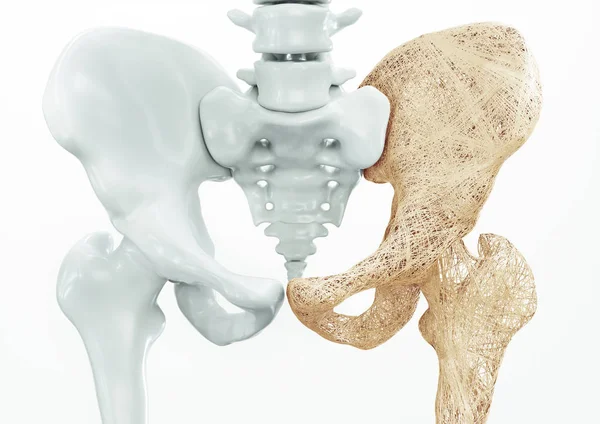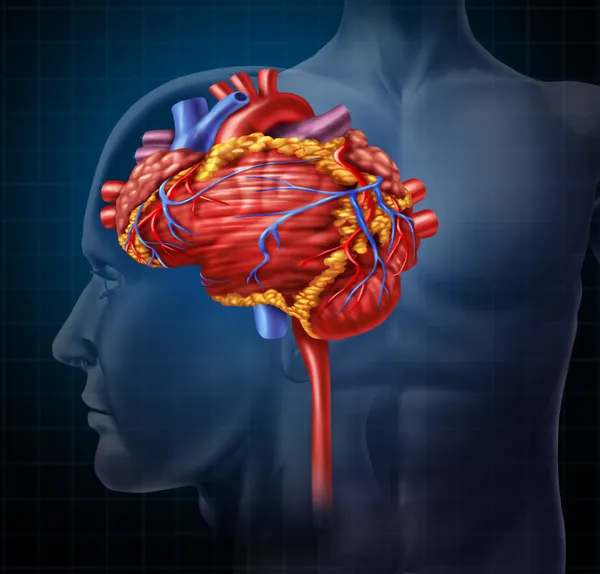
The dangers of over-exercising and how to avoid it
Exercise is essential for maintaining a healthy body and mind, but did you know that too much of a good thing can be bad? Over-exercising is a real concern that many individuals may not be aware of. It can cause a host of physical and mental health problems and can even lead to serious injuries. In this blog post, we'll be diving into the world of over-exercising and providing you with the knowledge you need to avoid falling into this trap.
You may be thinking, "But wait, how can I over-exercise? I thought more exercise was always better!" Well, my dear reader, it's all about balance. Just like eating too much cake will eventually lead to a sugar crash, over-exercising can lead to a host of physical and mental health problems such as fatigue, injury, and burnout. But don't worry, we're here to help. We'll be providing you with the information you need to recognize the signs of over-exercising and tips on how to avoid it. So put down that weight and step away from the treadmill, it's time to learn how to strike the perfect balance between exercise and rest.
Definition of over-exercising

When it comes to over-exercising, it's important to understand what it actually means. Simply put, over-exercising is when an individual engages in excessive physical activity that exceeds the body's ability to recover. This can include performing intense workouts on a daily basis, pushing through injuries, and neglecting rest and recovery.
It's easy to confuse over-exercising with regular exercise, but there are some key differences. Regular exercise is essential for maintaining a healthy body and mind, and it's recommended that adults aim for at least 150 minutes of moderate-intensity aerobic activity or 75 minutes of vigorous-intensity aerobic activity per week. On the other hand, over-exercising is characterized by excessive and prolonged physical activity that can lead to fatigue, injury, and burnout.
It's also important to note that over-exercising can manifest in different ways, from hardcore gym-goers to endurance athletes and even people who are just trying to be more active in general. In fact, some individuals may not even realize they are over-exercising because they believe that the more they exercise, the better.
So, to sum it up, over-exercising is excessive physical activity that exceeds the body's ability to recover, it's different than regular exercise and it can be harmful to both physical and mental health, it can manifest in different ways and it's important to be aware of the signs and to avoid it.
The impact on your hormones


When it comes to over-exercising, one of the biggest impacts it can have is on your hormones. Hormones are chemical messengers that travel through the bloodstream and help regulate various functions in the body, such as growth and metabolism. When you over-exercise, it can disrupt the delicate balance of hormones in the body and lead to a host of problems.
One of the hormones that can be affected by over-exercising is cortisol. Cortisol is a stress hormone that helps the body respond to stress and is released in response to physical and mental stressors. When you over-exercise, your body is under constant stress, which can lead to an excessive release of cortisol. This can cause a host of problems such as weight gain, muscle loss, and even depression.
Another hormone that can be affected by over-exercising is testosterone. Testosterone is a steroid hormone that plays a crucial role in muscle growth and development. When you over-exercise, your body's testosterone levels can drop, which can lead to muscle loss, decreased sex drive, and other problems.
Finally, over-exercising can also disrupt the balance of estrogen in the body. Estrogen is a hormone that plays a critical role in the menstrual cycle and reproductive health. When you over-exercise, your body's estrogen levels can drop, which can lead to menstrual irregularities, infertility, and other problems.
In conclusion, over-exercising can have a big impact on your hormones and can lead to a host of problems such as weight gain, muscle loss, depression, decreased sex drive, menstrual irregularities, and infertility. It's important to be aware of the signs that your hormones are out of balance and to seek medical advice if you suspect you may be over-exercising.
Bone density loss


When it comes to over-exercising, one of the lesser-known dangers is the potential for bone density loss. Bone density is the measure of how much mineral content is in your bones, and it's an important indicator of overall bone health. When you over-exercise, it can lead to a decrease in bone density and an increased risk of osteoporosis.
One of the reasons why over-exercising can lead to bone density loss is that it can cause a decrease in the body's levels of estrogen. Estrogen is a hormone that plays a critical role in bone health, and when levels are low, it can lead to bone loss. Additionally, over-exercising can also lead to a decrease in calcium and vitamin D levels, which are essential for strong bones.
Another reason why over-exercising can lead to bone density loss is that it can lead to injury. When you over-exercise, you are at a higher risk of sustaining injuries such as stress fractures, which can weaken bones and lead to bone loss over time.
It's important to note that weight-bearing exercises such as running, weightlifting, and jumping can help strengthen bones and increase bone density, but overdoing it can have the opposite effect. To maintain healthy bones, it's essential to strike a balance between exercise and rest, and to make sure you are getting enough calcium and vitamin D in your diet.
In conclusion, over-exercising can lead to bone density loss and an increased risk of osteoporosis, it can cause a decrease in the body's levels of estrogen, calcium and vitamin D, and it can lead to injury. To maintain healthy bones, it's important to strike a balance between exercise and rest, and to make sure you are getting enough calcium and vitamin D in your diet.
Cardiovascular risks 

When it comes to over-exercising, one of the potential dangers that many people may not be aware of is the cardiovascular risks it can pose. Your cardiovascular system is responsible for pumping blood throughout your body, and when you over-exercise, it can put a lot of stress on your heart and blood vessels. This can lead to a host of problems and increase the risk of heart disease.
One of the ways that over-exercising can increase the risk of heart disease is by raising blood pressure. When you over-exercise, your body is under constant stress, and this can lead to an increase in blood pressure. High blood pressure is a major risk factor for heart disease, and it can lead to a host of problems such as heart attack and stroke.
Another way that over-exercising can increase the risk of heart disease is by increasing the levels of LDL cholesterol in the blood. LDL cholesterol is often referred to as "bad" cholesterol, and it can build up in the blood vessels and increase the risk of heart disease. When you over-exercise, your body's LDL cholesterol levels can rise, which can increase the risk of heart disease.
It's important to note that regular exercise is essential for maintaining a healthy heart, but overdoing it can have the opposite effect. To maintain a healthy cardiovascular system, it's essential to strike a balance between exercise and rest and to make sure you are getting enough sleep and eating a healthy diet.
In conclusion, over-exercising can put a lot of stress on your heart and blood vessels and increase the risk of heart disease by raising blood pressure, increasing the levels of LDL cholesterol in the blood. To maintain a healthy cardiovascular system, it's essential to strike a balance between exercise and rest and to make sure you are getting enough sleep and eating a healthy diet.
Effects on the immune system

When it comes to over-exercising, one of the potential dangers that may not be as well-known is the effects it can have on the immune system. Your immune system is responsible for protecting your body from infection and disease, and when you over-exercise, it can put a lot of stress on your body and weaken your immune system.
One of the ways that over-exercising can weaken the immune system is by increasing inflammation in the body. Inflammation is a natural response to injury and infection, but chronic inflammation can lead to a host of problems such as allergies, autoimmune diseases, and even cancer. When you over-exercise, your body is under constant stress, which can lead to chronic inflammation and weaken the immune system.
Another way that over-exercising can weaken the immune system is by reducing the number of white blood cells in the body. White blood cells are essential for fighting off infection, and when their numbers are low, it can make you more susceptible to infections and illnesses. When you over-exercise, your body's white blood cell count can drop, which can weaken the immune system.
It's important to note that regular exercise is essential for maintaining a healthy immune system, but overdoing it can have the opposite effect. To maintain a healthy immune system, it's essential to strike a balance between exercise and rest, and to make sure you are getting enough sleep, eating a healthy diet, and managing stress.
In conclusion, over-exercising can weaken the immune system by increasing inflammation in the body, reducing the number of white blood cells in the body, making you more susceptible to infections and illnesses. To maintain a healthy immune system, it's essential to strike a balance between exercise and rest, and to make sure you are getting enough sleep, eating a healthy diet, and managing stress.
The Relationship between over-exercising and eating disorders

When it comes to over-exercising, one of the potential dangers that may not be as well-known is the relationship it can have with eating disorders. Eating disorders are a group of conditions characterized by abnormal eating habits and attitudes towards food, and over-exercising can be a symptom of some of these conditions.
One of the most common eating disorders that is related to over-exercising is anorexia nervosa. Anorexia is a serious eating disorder characterized by a fear of gaining weight and a distorted body image. Individuals with anorexia often engage in excessive exercise as a way to control their weight and maintain an extremely low body weight.
Another eating disorder that is related to over-exercising is bulimia nervosa. Bulimia is characterized by binge eating followed by compensatory behaviors such as purging or excessive exercise. Individuals with bulimia often engage in excessive exercise as a way to burn off the calories consumed during a binge.
It's important to note that while exercise is an important component of overall health, when it's driven by a distorted body image or the need to burn off calories, it can be a sign of an eating disorder. To prevent over-exercising from becoming an eating disorder, it's essential to focus on developing a healthy relationship with food and exercise, and to seek professional help if you suspect that you may have an eating disorder.
In conclusion, over-exercising can have a relationship with eating disorders, specifically anorexia nervosa and bulimia nervosa, it can be a symptom of these conditions, it's driven by a distorted body image or the need to burn off calories. To prevent over-exercising from becoming an eating disorder, it's essential to focus on developing a healthy relationship with food and exercise, and to seek professional help if you suspect that you may have an eating disorder.
How to recognize over-exercising 

When it comes to over-exercising, it's important to know how to recognize the signs and symptoms. Over-exercising can have a negative impact on both physical and mental health, and it's essential to be able to recognize when it's time to take a step back and rest.
One of the most common signs of over-exercising is fatigue. When you over-exercise, your body is under constant stress, and this can lead to fatigue, both physically and mentally. If you find yourself feeling tired and run-down, even after a good night's sleep, it may be a sign that you are over-exercising.
Another sign of over-exercising is a lack of progress in your fitness goals. When you over-exercise, your body doesn't have enough time to recover and repair itself, which can lead to a lack of progress in your fitness goals. If you find that you are not making the progress you want, despite working out regularly, it may be a sign that you are over-exercising.
Other signs of over-exercising include irritability, insomnia, and frequent injuries. If you find that you are frequently getting injured, or that your mood and sleep are affected, it may be a sign that you are over-exercising.
It's important to note that recognizing the signs of over-exercising is the first step in preventing it. To prevent over-exercising, it's essential to listen to your body, set realistic goals, and take regular rest and recovery days.
In conclusion, recognizing the signs of over-exercising is important, such as fatigue, lack of progress in your fitness goals, irritability, insomnia, and frequent injuries. To prevent over-exercising, it's essential to listen to your body, set realistic goals, and take regular rest and recovery days.
Alternative forms of exercise 

When it comes to over-exercising, one of the best ways to prevent it is by incorporating alternative forms of exercise into your routine. Alternative forms of exercise are less intense on the body and mind, and they can help you achieve your fitness goals while also promoting overall health and well-being.
One alternative form of exercise that is worth trying is Yoga. Yoga is an ancient practice that combines physical postures, breathing techniques, and meditation. It's a low-impact form of exercise that can help increase flexibility, strength, and balance. It's also a great form of exercise for those who are recovering from an injury or who want to reduce stress and promote relaxation.
Another alternative form of exercise that is worth trying is swimming. Swimming is a great form of exercise for those who have joint pain or who want to improve their cardiovascular health. It's a low-impact form of exercise that can help increase strength, endurance, and cardiovascular fitness.
Finally, hiking is a great alternative form of exercise that is worth trying. Hiking is a form of exercise that is easy on the joints and can help improve cardiovascular health, endurance, and strength. It's also a great way to spend time outdoors and enjoy nature.
It's important to note that while alternative forms of exercise such as Yoga, swimming, and hiking may be less intense than traditional forms of exercise, they can still provide an excellent workout and help to achieve fitness goals. To prevent over-exercising, it's essential to strike a balance between exercise and rest, and to make sure you are getting enough sleep, eating a healthy diet, and managing stress.
In conclusion, alternative forms of exercise such as Yoga, swimming and hiking can be less intense on the body and mind and can help to achieve fitness goals while also promoting overall health and well-being. To prevent over-exercising, it's essential to strike a balance between exercise and rest, and to make sure you are getting enough sleep, eating a healthy diet, and managing stress.
Conclusion
In conclusion, over-exercising is a real concern that many individuals may not be aware of. It can cause a host of physical and mental health problems, such as fatigue, injury, burnout, hormonal imbalances, bone density loss, cardiovascular risks, and even eating disorders. It's essential to be aware of the signs of over-exercising and to take steps to prevent it.
One of the best ways to prevent over-exercising is by striking a balance between exercise and rest. This means setting realistic goals, taking regular rest and recovery days, and listening to your body. Incorporating alternative forms of exercise into your routine can also help prevent over-exercising.
It's also important to make sure you are getting enough sleep, eating a healthy diet, and managing stress. These are all essential components of overall health and well-being and can help prevent over-exercising.
In the end, remember that exercise is essential for maintaining a healthy body and mind, but too much of a good thing can be bad. Be aware of the signs of over-exercising and take the steps necessary to prevent it. By striking a balance between exercise and rest, incorporating alternative forms of exercise, and taking care of your overall health and well-being, you can prevent over-exercising and enjoy the many benefits of regular exercise.
The dangers of over-exercising and how to avoid it
 Reviewed by jadan
on
January 24, 2023
Rating:
Reviewed by jadan
on
January 24, 2023
Rating:
 Reviewed by jadan
on
January 24, 2023
Rating:
Reviewed by jadan
on
January 24, 2023
Rating:




No comments: